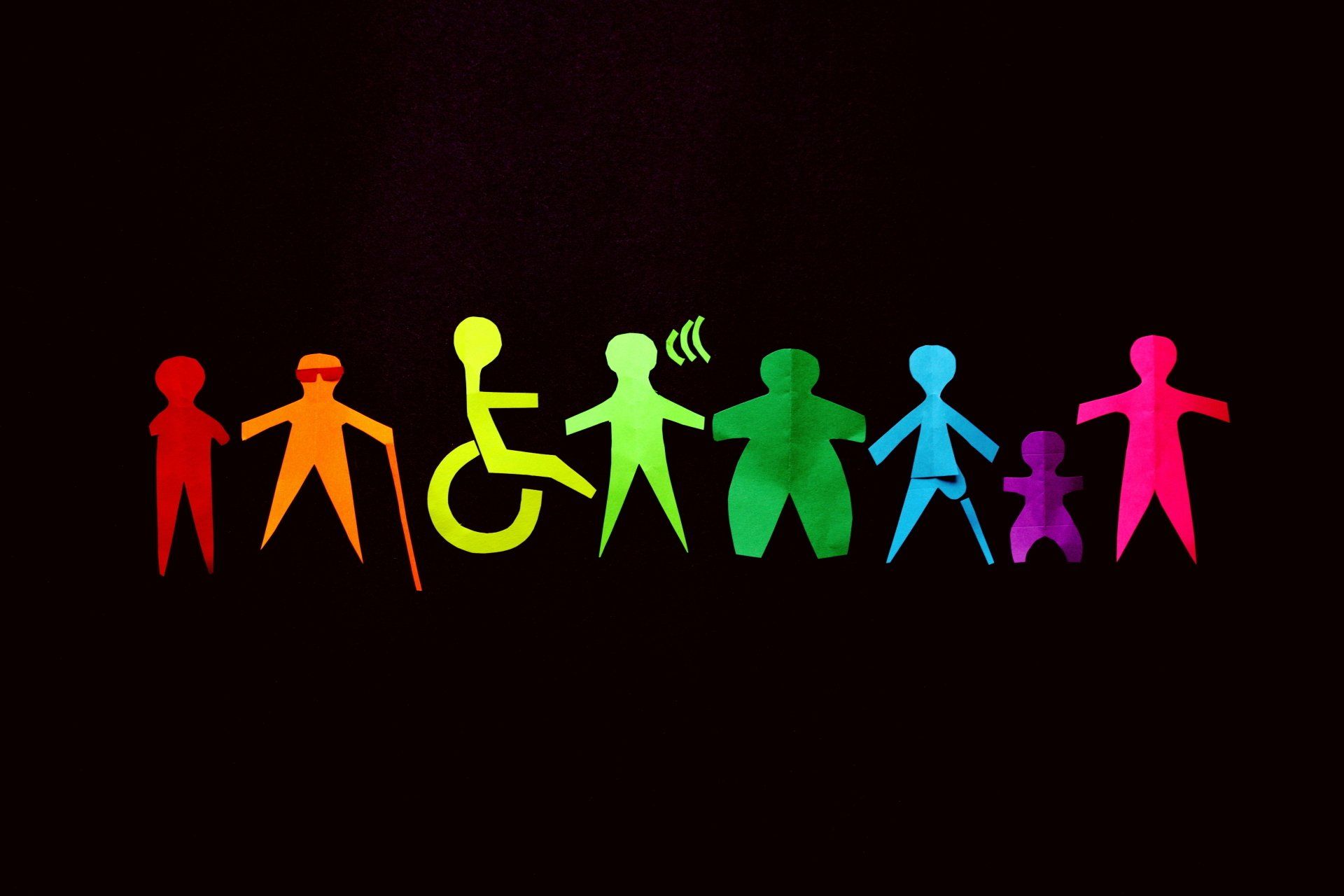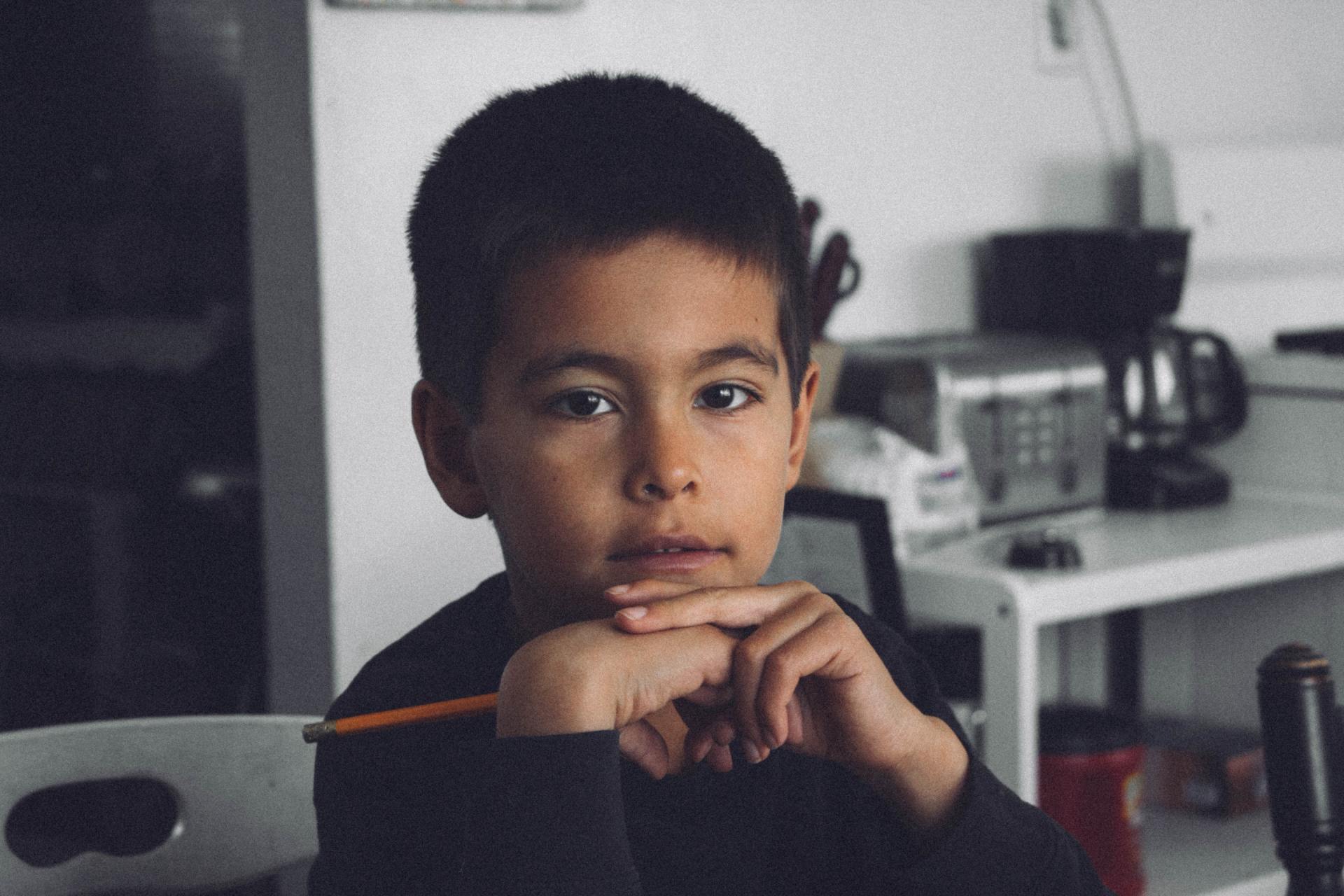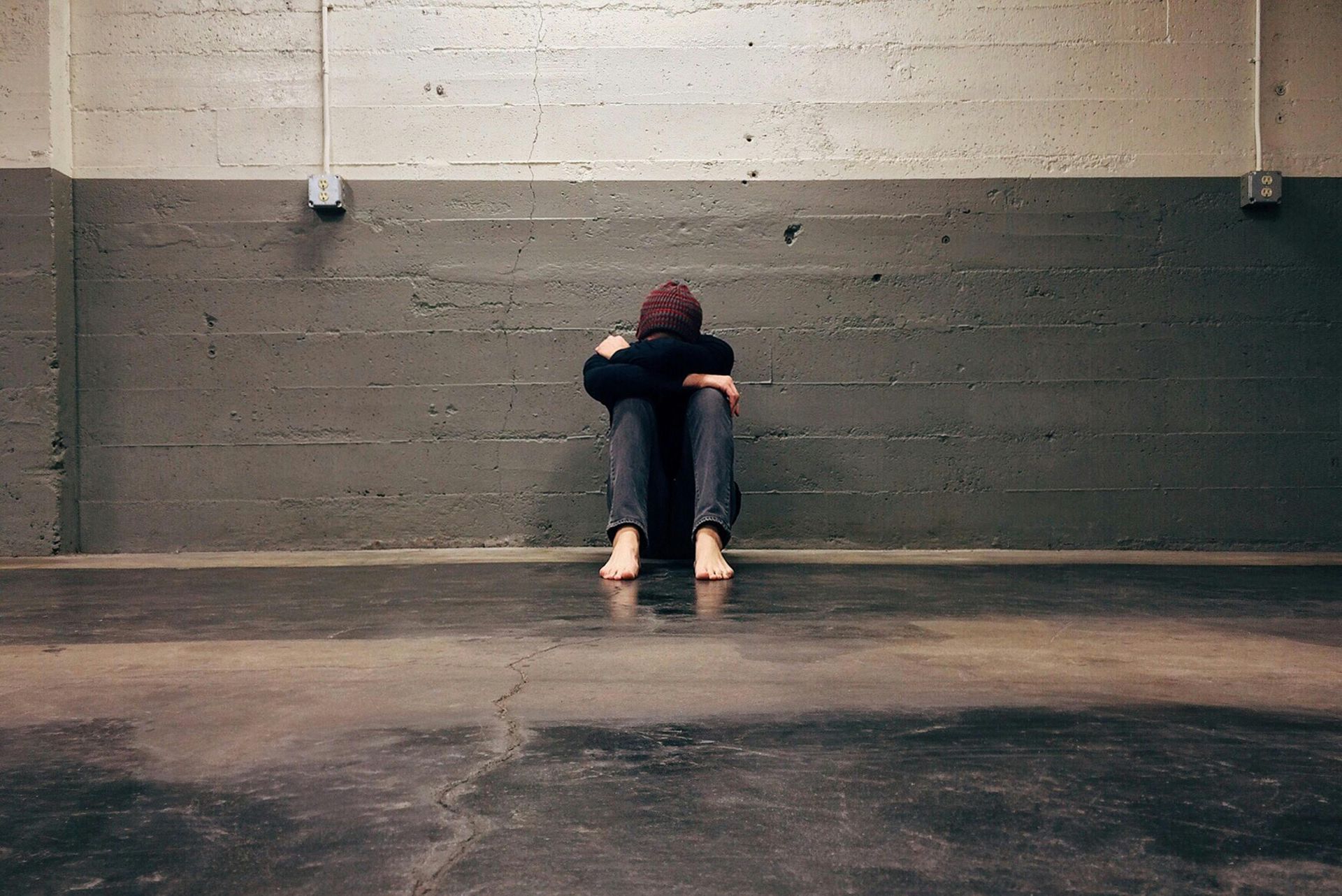Blog & News
Blog & news

By Jane Stratton
•
March 14, 2023
WOW!
JUST WOW!
Imagine me open-mouthed and lost for words! Quite difficult? That’s because it doesn’t happen often.
However, that was exactly what happened at the end of the most amazing workshop I attended yesterday at the ITAKOM conference.
Hands down, it was the most effective and informative session about neurodiversity I have ever attended (and I have attended quite a few).
The reason it was so good? It was delivered by a group of neurodiverse young adults from the Neuropoint Stakeholders Group from the Salvesen Mindroom.

By Charlotte Kirkwood, Kirkwood Tutoring
•
July 23, 2021
It's hard to believe that I've been doing this for a year now. Sitting down at my computer a few times a week and getting to speak to unique, intelligent and wonderful young people who all want to push themselves that little bit further. In light of this, It feels only right to reflect on what I've learned myself in this time. Spoiler alert; it's far more than I thought I would. Expect the unexpected It's safe to say I didn't think I was going to end up doing this, and I think that's a big part of what has made the experience so special. Life is so unpredictable, and for someone who loves to plan, it's huge for me to even say those words. But, more often than not, unpredictability leads to where you were meant to go. Don't fear trying something new, you might like where it gets you. Be willing to ask for help The only reason I am where I am is through the support of others. Be it Jane , for helping me get started with the business, to my family supporting me through it, and even to my friends for reassuring me when I wasn't sure if I could do it. Asking and offering help is, as we have all learned in the past year and a half, one of the most essential parts of our humanity. We undeniably need each other, and shouldn't be afraid to admit it. Never Underestimate Young People This is the second biggest lesson I learned. Every single young person I had the joy of interacting with over this first year has disproven every stereotype the world puts out there. They are all bright, brilliant communicators, funny, unique and caring. There wasn't one session where they didn't also ask me how I was before we started. Each one of them proved to me that they didn't deserve to be underestimated in the slightest. Pulling their grades up through hard work, teaching me something I didn't know, creating masterful pieces of writing, and even proving to themselves that they knew what they were doing. We need to listen more to our teenagers This, for me, is the biggest lesson for everyone who may come across this post. I have always valued the voices of our young people. I believe they're fundamental to our developing society and our future. Unfortunately, I know many who would rather believe the contrary. The individuals that I worked with over this year proved that young people deserve a say in their lives, their future, and their education. Many of them are passionate to take a stand for their peers, they just need the support. I love doing this. At the end of the day, it's simple. I always thought I'd be working with young people in some capacity, and here I am. Three weeks out from beginning my teaching journey, and from tutoring beginning again. I honestly cannot wait. Being able to make a difference, no matter how small, means a lot to me. I fell in love with this role over the last year, and I can't wait to keep going. So, to the Kirkwood Tutoring Class of 2021, I wish you all the luck in the world. You all deserve it 10 times over. And thank YOU, for teaching me and trusting me. I hope the world is kinder to you all this year.

By Jane Stratton
•
April 4, 2021
Currently in my forties, heading towards my fifties, I can look back and see just how perfect this career has been for me. All my children have additional support needs and have needed a hands-on mum to advocate on their behalf and negotiate what has been to them, a stressful and damaging education system. I have gained such a wealth of knowledge of child development, neurodiversity, education systems and learning styles, both in my personal life and in my career, that I am now able to offer so much to the families and youngsters with whom I work. I bring to my tutoring, not only knowledge learned from research and qualifications but more importantly from lived experience. It has given me a confidence in what I do too, and I have been able to adapt over the years from black and white books and paper posters through the introduction of coloured books and laminated adverts (!) to eBooks, social media marketing, websites, a plethora of digital resources and a physical in-house science lab for practical experiments and monthly tutorials. With the Covid-19 situation, I have seamlessly moved to online tutoring and am actually thoroughly enjoying being able to offer my services further afield, although I also look forward to the day when I am able to see some pupils again face-to-face. Education itself has seen numerous changes over the years, with the need once again for drastic change. I have learnt so much about adapting my tutoring style as curriculum changes have been introduced and assessments have been redesigned. Many have opposed these changes but as tutors, we have to constantly adapt if we are to successfully support today’s learners. Private tutoring, with its flexibility, personal approach and adaptability lends itself well to modern learning and I just love what I do! For so many people who have recently graduated, lost their job or whose family situation has changed, employment is looking bleak. All I can say is, if you are passionate about a subject, and would love to share it whilst also improve the prospects for the next generation, give tutoring a try ; it can truly change your life!

By Jane Stratton
•
March 29, 2021
Have I always wanted to be a tutor? No! I fell into it by accident….. 28 years ago. It resulted from a chance encounter with a family friend whose son, Andrew, was struggling at school due to dyslexia; he had been told that he was on target to drastically fail Higher Biology. I was on a health-induced break from studying a medical degree in Prosthetics and Orthotics and knowing that I had studied all three sciences at school, Andrew’s mum thought I might be up to the challenge of helping him. My tutoring career began! I thoroughly enjoyed working with Andrew and explaining the Higher concepts seemed to come naturally. My father had dyslexia , so I had no negative judgements about his additional learning needs; he was grateful for the help and we got on well. Andrew passed his Higher and was absolutely delighted. My name was passed on to others and I have never looked back! Back then of course, there were no home computers; all my notes were hand-written and copied on a fax machine! I worked from black and white books and photocopied past papers. How times have changed! To advertise, I made an A4 poster with my home phone number (I didn’t have a mobile back then) on little detachable flaps. I always felt a youthful sense of excitement when a few weeks later I’d have to replace the advert as all the flaps were gone! Over the years, not only have tutoring and technology changed but so has my life…. drastically! When I started, I was young (very), single, living at home with my parents and dreaming of a medical career. Never once did I envisage myself tutoring long-term. The thing is, life rarely pans out as planned. By my early twenties, I was married and very happy but had seen my medical career hopes dashed by very poor health. In time, I would work my way through other qualifications and also go back to University but not to follow that original dream. Now however, I can contribute to so many youngsters’ dreams for future careers, and that is pretty special. I continued tutoring while learning how to be a wife and loved the fact that I could fit it around all our other commitments, socialising and travel. A decade later, I had three amazing children and life was very hectic. I was still tutoring and was pretty well known in the area that we lived. I was thoroughly enjoying being able to be a full-time mum to my children; something that I had always wanted to do. I tutored in the evenings when the children were in bed and I loved the flexibility it afforded me. It fitted well around family life and it felt more like a hobby that I was sharing with others. Tutoring had changed in many ways. One most notable difference was how many learners had tutors. I lived in an area served by high achieving schools, and many youngsters were under pressure to perform to an A-grade standard. In the early days, I was being asked to support pupils with specific learning needs or those who had suffered long absences from school. This had changed drastically. Of the pupils I was seeing, while many still had additional support needs, several were broken in terms of their confidence and self-esteem; sadly, this is still the same today. Not only am I sharing my passion for Biology, I am also supporting youngsters to believe that they CAN do it ! It is still every bit as rewarding as it ever was, but it now has added aspects to it.

By Jane Stratton
•
January 29, 2021
The fact that I haven’t written a blog for quite some time but have decided to type this today, will hopefully emphasise how important I feel this topic is, and how urgently it needs addressing. Mental health is one of those subjects that people either feel passionate about or that is given the ‘raised eyes’ treatment and dismissed. No matter which of these categories you fall into, I urge you to read on; I will keep it short and to the point. I have been a private tutor for nearly three decades and as such, have worked with a great many amazing teenagers for whom school has been a struggle. However,……… I have never before been faced with so many youngsters quite literally at breaking point. This past year has been tough for so many people; this has been well documented. Also, well publicised has been adult opinion of the potential effects of school closures on our young folk. However,……….never did I foresee the damage to the minds of these amazing youngsters that is happening right now. Today! I have numerous pupils buckling under the barrage of work being sent their way. Many are staying up during the night to complete schoolwork given out that day and due at midnight! Most spend their days copying power point slides into jotters (the new ‘learning’ for many) then spend their evenings and nights completing homework that feels impossible in the absence of ‘proper’ teaching. Some are then receiving extremely derogatory comments from teachers about the standard of their work, after spending hours and hours on it; at times such as 1:30AM……..I have seen the screenshots! Of course, there are also pupils who are being given live lessons and work to be completed during ‘school hours’, and who are having private catch-ups with staff to make sure they are ok. Thank you so much to these amazing, dedicated and compassionate teachers……you know who you are! However, I am seriously concerned by the alarming ‘state’ of the majority of my pupils and I am quite literally watching fine, young students crumble and mentally disintegrate on the other side of my screen. These pupils are terrified to miss submitting work in case it affects their predicated grades…….some have been told that this is a consequence they will face. These youngsters are sitting in front of a screen for up to 16 hours a day. I feel helpless but I need to try and do something. Helping them with their Biology just doesn’t seem enough anymore. Many teachers have their own set of complications at the moment, and this I understand, but somebody, possibly at national level needs to address this urgently. I believe that home learning could have been designed as a positive experience for our young learners if it had been properly managed centrally; this I believe would have better supported staff and pupils alike. Has anyone asked the pupils what would be best for them; they need their voices heard. We are about to face a new crisis. A mental health crisis. A crisis of such damaging proportions for our youngsters, that I feel will be impossible to undo. UNLESS WE ACT NOW!

By Jane Stratton
•
October 8, 2020
Yesterday, after a six-week wait, staff, tutors, parents and learners heard the Scottish Government’s plans for the SQA 2020/21 qualifications! The announcement from John Swinney didn’t cover all the planned changes and left many unanswered questions leaving many upset, confused and exhausted. In an effort to try to allay fears, I have summarised the published details below: 1. National 5 Exams have been cancelled this academic year. Grades will therefore be awarded using teacher/lecturer predicted grades. 2. All assignments/ projects for non-practical subjects, except English, have been cancelled for National 5, Higher and Advanced Higher. 3. Higher and Advanced Higher exams will be sat between 13th May and 4th June. The exam timetable will be published by the end of October. 4. There will be ongoing, regular assessment of the Covid-19 situation until the February ’20 half-term with regard to a decision to cancel the exam diet. 5. Exam structure in some subjects has changed and this can be found by searching by subject on https://www.sqa.org.uk/sqa/45625.html 6. Continuous assessment throughout this academic year will inform staff predictions in National 5, Higher and Advanced Higher. Predictions will be made to the SQA at all levels and these will be used as a guide for the SQA should the Highers and Advanced Highers be cancelled. For those pupils who are sitting National 5, Higher and Advanced Higher Qualifications this year, there will no doubt be mixed feelings about the latest news and there will be a certain amount of concern about continuous assessments. I am very happy to discuss these at any time and will help where I can. Tutors are very busy already this year, so I encourage anyone needing help, to seek support early. We are there to work on-to-one with pupils, or in small groups, and will always do our best to support, encourage and boost the confidence of our pupils. Many tutors are offering extra session options in order to accommodate all learners in need. Please comment below or contact me via my website if you need assistance.

By Jane Stratton
•
September 13, 2020
Schools in Scotland have now been back for a month and there has been much media attention centred around the wearing of masks, social distancing (or not) and new Covid-19 cases. All this is vitally important of course, but what is school really like for our teenagers? The answer, given by one of my tutees, “Very, very stressful!” We all knew that the pandemic was going to take its toll on the younger members of society, and we were told that ‘Health and Wellbeing’ were going to be the primary focus when schools resumed……. but has that been the reality in all of Scottish Secondary Schools? Another tutee gave this response, “No, I feel more worried and stressed than I have ever felt at school before.” The reality is that teachers are having to rush through the courses in case there are more school closures, and there is no time for the students who are struggling to catch up. When learners know they are finding a subject hard, they are dreading those lessons and are in a state of panic even before entering the classroom. This drastically reduces the chance of them gaining any knowledge whatsoever form the class, and the anxiety feels as though it is, “on a loop.” Add to this, the continuous assessment in every subject. For some, this is as many as eight subjects at National 5, for others, five subjects at Higher level and for some, two at advanced Higher and as many as three other subjects. Parents are saying that their youngsters are, “exhausted and on edge all the time.” They are constantly worried about tests as it has been, “ drummed into them” , how important it is to achieve high marks from the beginning of the year in case predications are necessary again. One parent called me last week to enquire about tutoring for her daughter; she had called home during the day upset because her class had been told that they were, “the worst year” the teacher had ever had. I tried to reassure her that this would not be the case as no third-year class would have been given the test that she was receiving marks for, ever before! Despite the SQA stating that there would be a statement outlining the planned changes to courses and exams for 2020-2021 two weeks ago, we are still awaiting this news, a fact that pupils are being told by staff on a daily basis. School teachers are very legitimately feeling the pressure themselves and understandably want to explain to their pupils that they do not have any guidelines to pass on as yet. Unfortunately, however, this is taking further toll on a group of youngsters, many of whom have recently been affected by the exam results fiasco, and all of whom are negotiating their way through a global situation that has never been experienced before. Our children are having to find homework on digital systems, try and work out what they are expected to do, when it has be to be returned, and to whom, and many parents feel ill equipped to assist. This is all happening at a time when the teenage brains are ‘rebooting’ anyway and there seems to be no allowance being made for this. I feel very inadequate myself at the moment as these youngsters are really needing my support, but I simply don’t have all the answers for them! Working one-to-one however at least affords me the chance to reassure them individually and give them the personal encouragement needed. I specialise in supporting learners with additional support needs. It seems to many that they have been forgotten in this situation, and if we are not careful to identify their individual requirements and nurture their self-esteem, we will be looking at a vast number of learners suffering desperately low confidence, extreme anxiety and possibly falling out of the education system altogether. In short, they are seriously struggling with all the new demands of school, on top of the challenges with learning they already experienced. Parents are extremely concerned and at a loss to know what to do for the best. I am taking daily enquiries and my spaces for new pupils are vanishing fast. I imagine all tutors will be the same, and this in itself is a worry for pupils who may therefore not get one-to-one support at all. I have developed new services this year to try and reach as many youngsters as I can, and I expect that other tutors will too. I am also encouraging others to think about tutoring as a career as families are desperate for the input. Please can we rally round these youngsters because the reality of school for them is far from what was hoped? Together, let’s make things better!

By Jane Stratton
•
August 26, 2020
Have I always wanted to be a tutor? No! I fell into it by accident….. 28 years ago. It resulted from a chance encounter with a family friend whose son, Andrew, was struggling at school due to dyslexia; he had been told that he was on target to drastically fail Higher Biology. I was on a health-induced break from studying a medical degree in Prosthetics and Orthotics and knowing that I had studied all three sciences at school, Andrew’s mum thought I might be up to the challenge of helping him. My tutoring career began! I thoroughly enjoyed working with Andrew and explaining the Higher concepts seemed to come naturally. My father had dyslexia, so I had no negative judgements about his additional learning needs; he was grateful for the help and we got on well. Andrew passed his Higher and was absolutely delighted. My name was passed on to others and I have never looked back! Back then of course, there were no home computers; all my notes were hand-written and copied on a fax machine! I worked from black and white books and photocopied past papers. How times have changed! To advertise, I made an A4 poster with my home phone number (I didn’t have a mobile back then) on little detachable flaps. I always felt a youthful sense of excitement when a few weeks later I’d have to replace the advert as all the flaps were gone! Over the years, not only have tutoring and technology changed but so has my life…. drastically! When I started, I was young (very), single, living at home with my parents and dreaming of a medical career. Never once did I envisage myself tutoring long-term. The thing is, life rarely pans out as planned. By my early twenties, I was married and very happy but had seen my medical career hopes dashed by very poor health. In time, I would work my way through other qualifications and also go back to University but not to follow that original dream. Now however, I can contribute to so many youngsters’ dreams for future careers, and that is pretty special. I continued tutoring while learning how to be a wife and loved the fact that I could fit it around all our other commitments, socialising and travel. A decade later, I had three amazing children and life was very hectic. I was still tutoring and was pretty well known in the area that we lived. I was thoroughly enjoying being able to be a full-time mum to my children; something that I had always wanted to do. I tutored in the evenings when the children were in bed and I loved the flexibility it afforded me. It fitted well around family life and it felt more like a hobby that I was sharing with others. Tutoring had changed in many ways. One most notable difference was how many learners had tutors. I lived in an area served by high achieving schools, and many youngsters were under pressure to perform to an A-grade standard. In the early days, I was being asked to support pupils with specific learning needs or those who had suffered long absences from school. This had changed drastically. Of the pupils I was seeing, while many still had additional support needs, several were broken in terms of their confidence and self-esteem; sadly, this is still the same today. Not only am I sharing my passion for Biology, I am also supporting youngsters to believe that they CAN do it! It is still every bit as rewarding as it ever was, but it now has added aspects to it. Currently in my forties, heading towards my fifties, I can look back and see just how perfect this career has been for me. All my children have additional support needs and have needed a hands-on mum to advocate on their behalf and negotiate what has been to them, a stressful and damaging education system. I have gained such a wealth of knowledge of child development, neurodiversity, education systems and learning styles, both in my personal life and in my career, that I am now able to offer so much to the families and youngsters with whom I work. I bring to my tutoring, not only knowledge learned from research and qualifications but more importantly from lived experience. It has given me a confidence in what I do too, and I have been able to adapt over the years from black and white books and paper posters through the introduction of coloured books and laminated adverts (!) to eBooks, social media marketing, websites, a plethora of digital resources and a physical in-house science lab for practical experiments and monthly tutorials. With the Covid-19 situation, I have seamlessly moved to online tutoring and am actually thoroughly enjoying being able to offer my services further afield, although I also look forward to the day when I am able to see some pupils again face-to-face. Education itself has seen numerous changes over the years, with the need once again for drastic change. I have learnt so much about adapting my tutoring style as curriculum changes have been introduced and assessments have been redesigned. Many have opposed these changes but as tutors, we have to constantly adapt if we are to successfully support today’s learners. Private tutoring, with its flexibility, personal approach and adaptability lends itself well to modern learning and I just love what I do! For so many people who have recently graduated, lost their job or whose family situation has changed, employment is looking bleak. All I can say is, if you are passionate about a subject, and would love to share it whilst also improve the prospects for the next generation, give tutoring a try ; it can truly change your life!

By Jane Stratton
•
August 10, 2020
In recent weeks, there has been much media attention surrounding parents’ and teachers’ views regarding schools reopening; very mixed and often, conflicting thoughts have been expressed. Unfortunately, however, I am yet to see much coverage of pupils’ feelings about returning to school and I have seen even less focus on those with additional support needs (ASN). With this in mind, I have spent the last few days speaking to young learners with ASN, and their parents, in order to offer some honest representation. They have been eager to pass on their feelings about Scottish schools starting back full-time. There is a considerable amount of concern amongst parents and the feelings of young people can be summarised as anxiety and fear (or even terror) for the majority. One young man (16) described the excruciating reality of attending a mainstream school. His daily life prior to lockdown consisted of extreme masking, spending years covering up his challenges in order to be accepted by peers and teachers. He has endured regular punishment, bullying and humiliation since starting school at 4 years old; similar to many of the youngsters with whom I have spoken. I simply cannot begin to imagine the anxiety felt throughout their school years. In short, this young man has put himself under intolerable pressure conforming to ‘neurotypical’ school life, resulting in school being likened to a “ prison sentence ” . He told me that for the last four months he has been able to be his true self and now doesn’t feel able wear the mask again. “If I went back to school as the real me, I’d get into trouble, be bullied and would be made to feel like a freak. I can’t go back to hiding it anymore though.” For this reason, he will not be returning to school, choosing instead to continue his education at home, with online tutors . I can’t help but be sad for the school; this is an exceptional youngster who has so much to offer a school community if he could just be accepted as he is. For another family, lockdown has been tough and the son (12), who has autism, has struggled to engage with schoolwork despite his anxiety levels thankfully being vastly reduced. The start of term was always going to be tough but part-time attendance with blended learning sounded manageable. Now however, with plans changed to full-time education, things have escalated at home. He has refused to try on new school shoes, school uniform and states that he will not be returning. When asked why, he is unable to put his feelings into words, but his mum was able to tell me that his anger and anxiety have “ramped up” resulting in aggressive behaviour which is impacting the whole family. This is likely to be a very tough time for him and the probability is that he will be unable to attend school on a full-time basis, if at all. A young girl (9), relieved to let me know her feelings, described enjoying home-learning. She has dyslexia and ADHD along with sensory differences. She expressed how difficult school is for her and that she is, “really, really, really scared” about returning. She likes her friends but seeing them, “won’t make up for how bad things will be” for her. At home, she can wear her own clothes and take as long as she needs to finish her work. Her mum said that she has produced more work at home than she has done in her 5 years at school put together! She is now loving reading about things that interest her and because she is much more relaxed, she has been able to see that she is, “actually pretty clever!” When talking about learning at home, she smiled and became animated, using hand gestures to add to her description. Her demeaner drastically changed as soon as she started talking about school; she sank into her chair and held her head in her hands, picking at the skin on her cheeks. As her body language changed and her voice weakened to a whisper, it made for emotional listening. How can we ensure these young learners are heard? In total, I have spoken to a dozen children (and families) with a variety of different additional support needs. Without exception, the overriding emotion displayed when talking about returning to full-time, mainstream school, was extreme anxiety and for more than half, measurable distress. None felt understood at school and all described hiding the majority of their challenges and struggles from peers and teachers. Having discovered an ability to learn and succeed in ways they had thought impossible, they are now “scared” , “frightened” and “panicky ” about going back into an environment that “does so much harm”. In all honesty, as the mum of three children with significant additional support needs, much of what these fabulous young pupils described was no surprise to me. However, what was shocking was the parents’ description of a rapid onset of extreme anxiety when the Scottish Government announced their plan for full-time schooling . It is clear that this anxiety is real, severe and exhausting for children and parents alike. This is not a ‘natural nervousness’ that many may feel returning to school after summer. Many parents are seriously contemplating not sending their ASN children back to school. One mother told me that she was being asked to send her son “back into the lion pit” . Parents are truly worried, and with just cause. They have now seen their children thrive with a different type of schooling; rather than their children being incapable of learning, they have seen that by changing the environment, these youngsters have been able to flourish, both academically and more importantly, emotionally. I must acknowledge that there may be other children who have had different experiences during lockdown, and for them, school may be a sanctuary. I suspect however, that the stories I have heard while researching for this blog, are very common. Please let’s give these amazing youngsters the understanding, compassion and encouragement they need and help them make the transition back to a school life that will accept them as they are.



